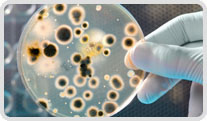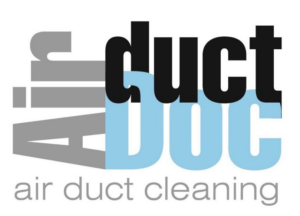IAQ HOME & OFFICE SURVEY – A TOOL FOR PROFESSIONALS TO ASSESS INDOOR AIR QUALITY AND ACTIVE MOLD GROWTH – ACCURATELY AND INEXPENSIVELY
Home air quality is a growing health issue throughout the US. Most homeowners and potential home buyers are not aware there is an accurate and inexpensive way to determine the level of unwanted chemicals in-home air. Additionally many states and lending institutions now recommend that a home air quality audit be performed during a property sale.

IAQ Commercial Survey is an accurate, simple to use and cost-effective tool for use in determining airborne chemicals (VOCs) and active growing mold (MVOCs) in-home air. With a single sample, IAQ Home Survey reports the air quality via the total levels of VOCs (TVOC) and MVOCs (TMVOC). Most importantly, chemical information is translated into categories of potential sources. This allows an action plan for improving air quality to be developed. In the case of a real estate transaction, it identifies the chemical contamination contributed by the home itself.
IAQ Home Survey is a cost-effective tool for indoor air quality assessments. It is particularly useful in real estate transactions. A home inspector can easily and cost-effectively perform an air audit in conjunction with the home inspection.
Industrial & Manufacturing Air Quality Testing –
According to the EPA, we spend about 90% of our time indoors. With industrial buildings containing significant amounts of air contamination sources and inadequate air ventilation systems, exposure to air pollution becomes problematic for many workers and decreases productivity and work quality. Regular exposure to poor indoor air quality can cause many health effects, from mildly irritating to extremely serious.
MICROBIOLOGY IDENTIFICATION SERVICES
 SanAir operates a state-of-the-art microbiological analysis laboratory, based outside of Richmond, Virginia. This facility is equipped to analyze viable and non-viable air, bulk, and direct surface samples.
SanAir operates a state-of-the-art microbiological analysis laboratory, based outside of Richmond, Virginia. This facility is equipped to analyze viable and non-viable air, bulk, and direct surface samples.
We offer a complete line of analytical methods and lab testing for the determination of mold and bacteria from bioaerosol, surface, and bulk material samples. Our mold and bacteria testing lab is dedicated to superior customer service and maintaining high standards for mold sampling results and laboratory analysis. Please view our mold testing laboratory protocols. Our laboratory is accredited and offers prompt mold testing results and online analysis.
SanAir can help develop and ultimately provide custom sampling protocols based on specific client needs, for either individual or any combination of microbiological constituents.
Viable Air Sample Analysis includes a quantitative and qualitative assessment of fungi and bacteria using Andersen impaction or filtration air sampling techniques and viable culturing methods. Reports include identification to the genus and/or species level, calculated values representing colony forming units per cubic liter of sampled air, and visual comparison of outdoor versus indoor microbial concentrations.
Total Air Analysis (Air-O-Cell, Cyclex-d, Micro-5, or Laro-100) includes a quantitative and qualitative assessment of fungal spores and environmental particles using direct light microscopy methods. Reports include identification to the genus level, calculated values representing spore and particle concentration per cubic meter of sampled air, and visual comparison of outdoor versus indoor microbial concentrations.
Direct Microscopy Analysis includes a qualitative assessment of fungi using direct light microscopy methods. Samples may include tape preps, bulk material, swabs, filter cassettes, or contact plates. Reports include identification of genus or if possible the species level.
Viable Bulk or Swab Analysis includes a quantitative and qualitative assessment of bulk material and surface swabs for fungal or bacterial content. Reports include identification to genus or if possible the species level, and calculated values representing colony forming units per gram for bulk material and colony-forming units per square inch for swab samples.
Click here for our Sampling Protocols.
